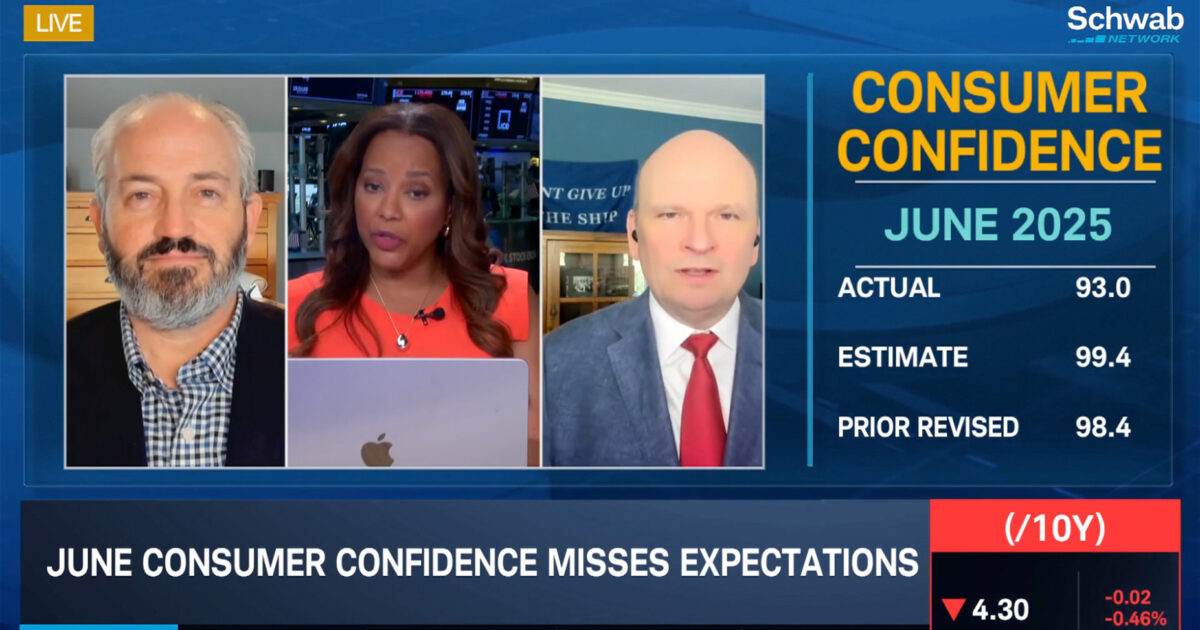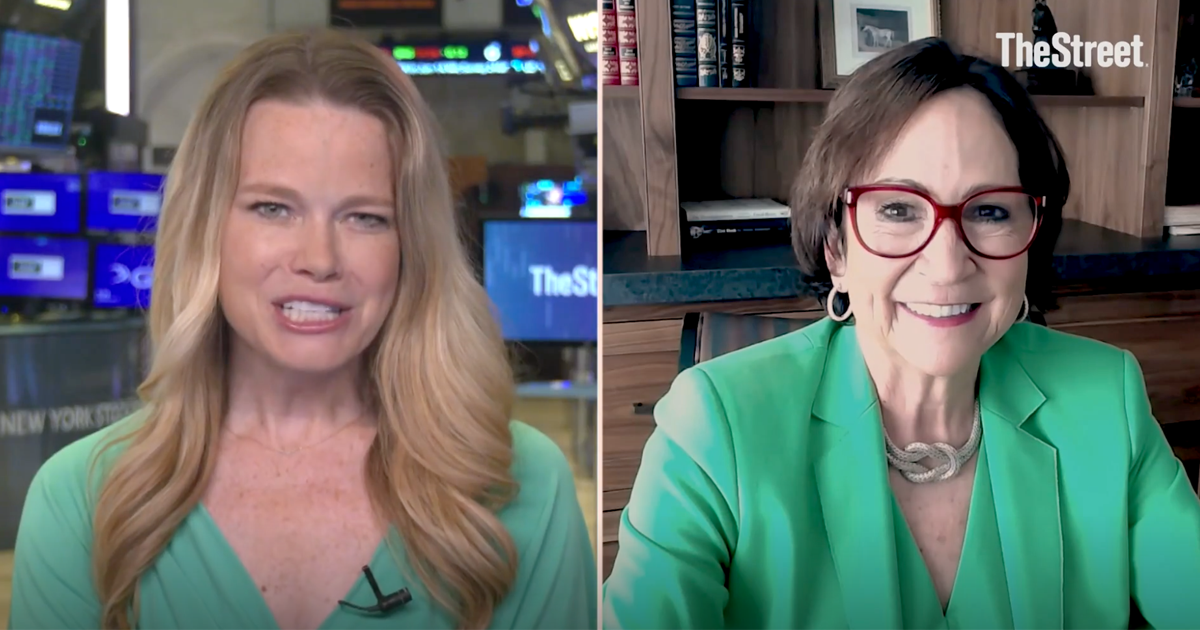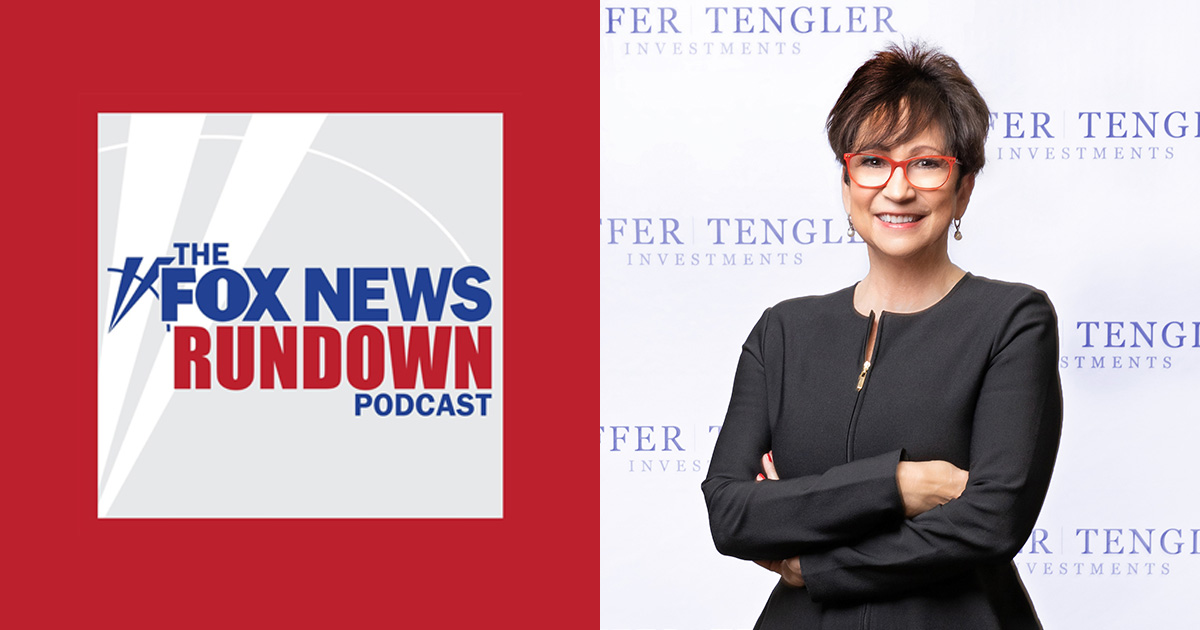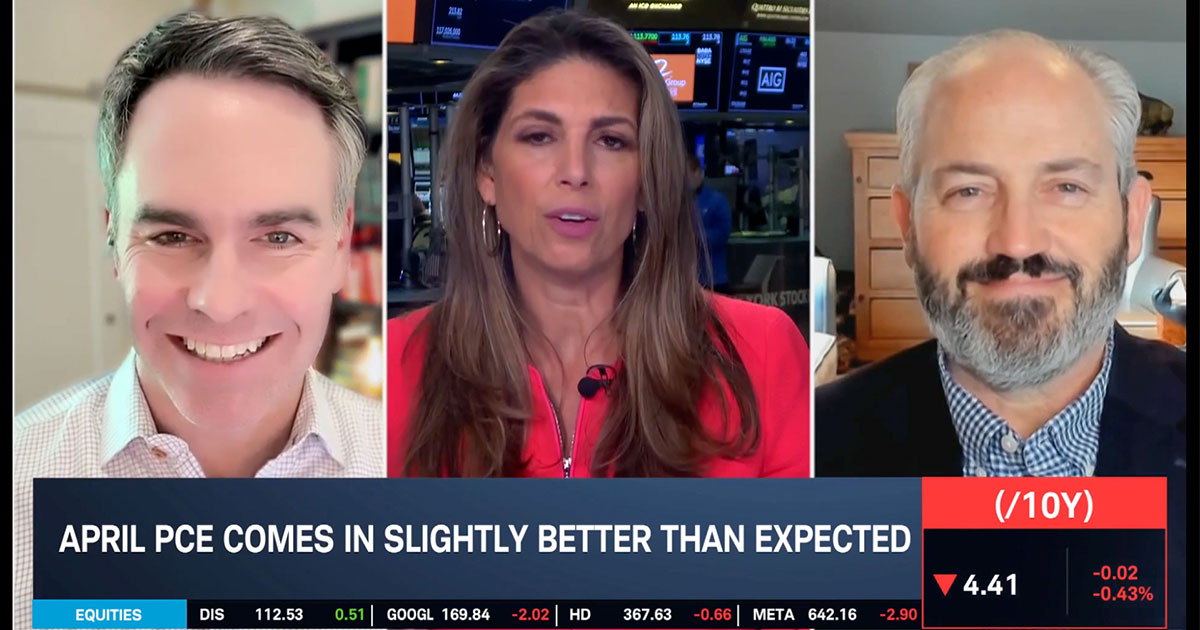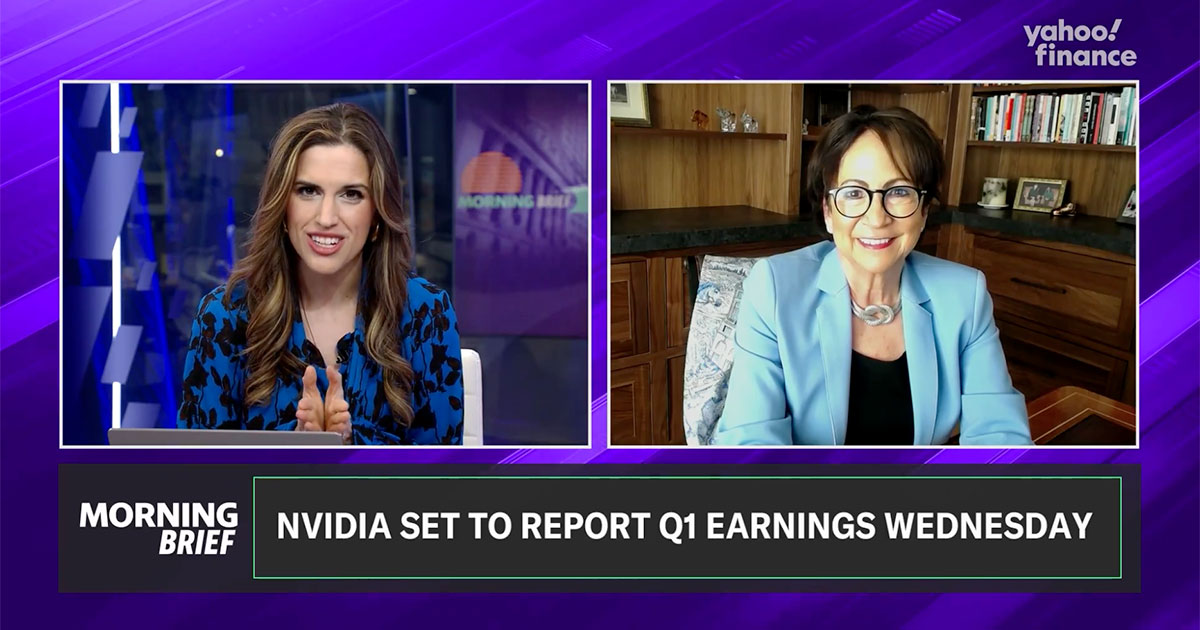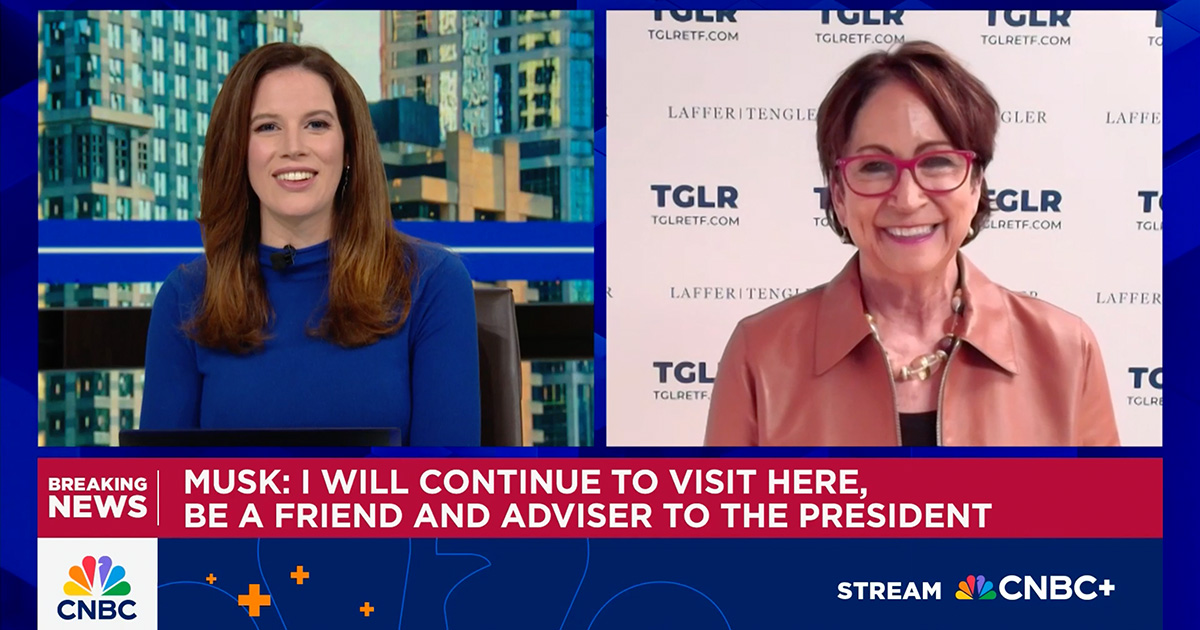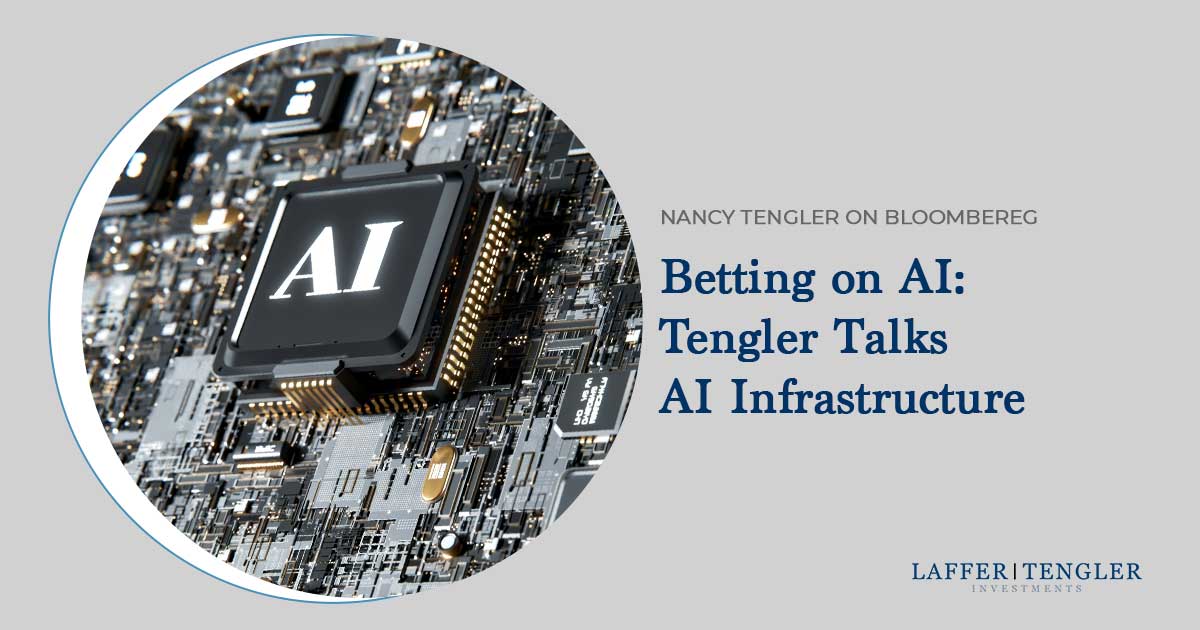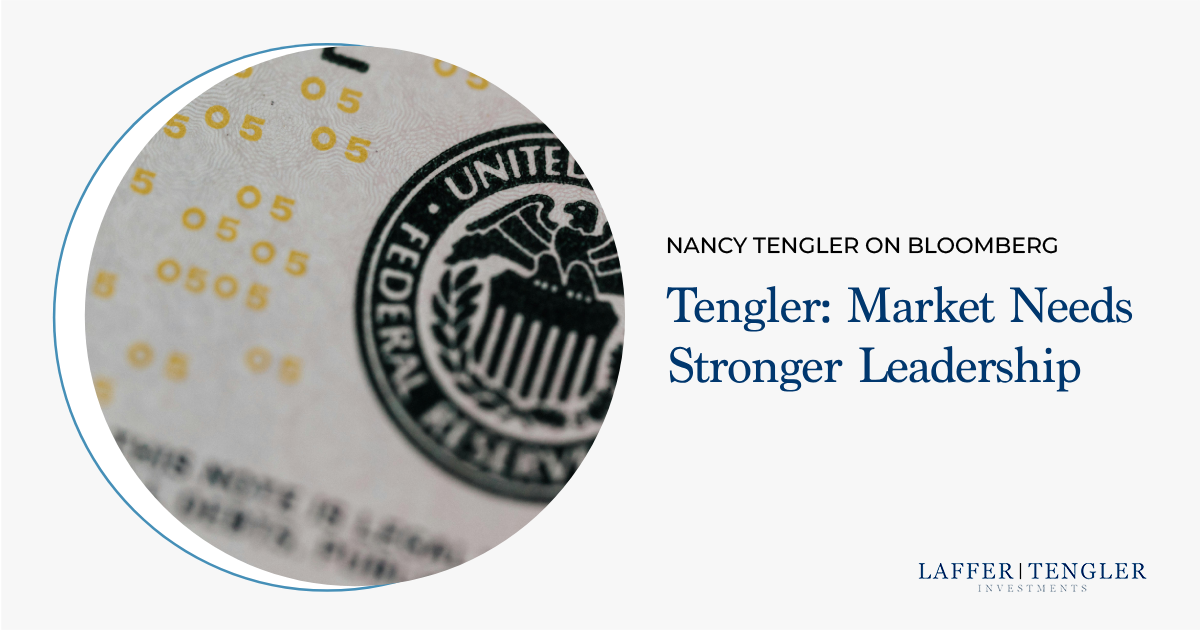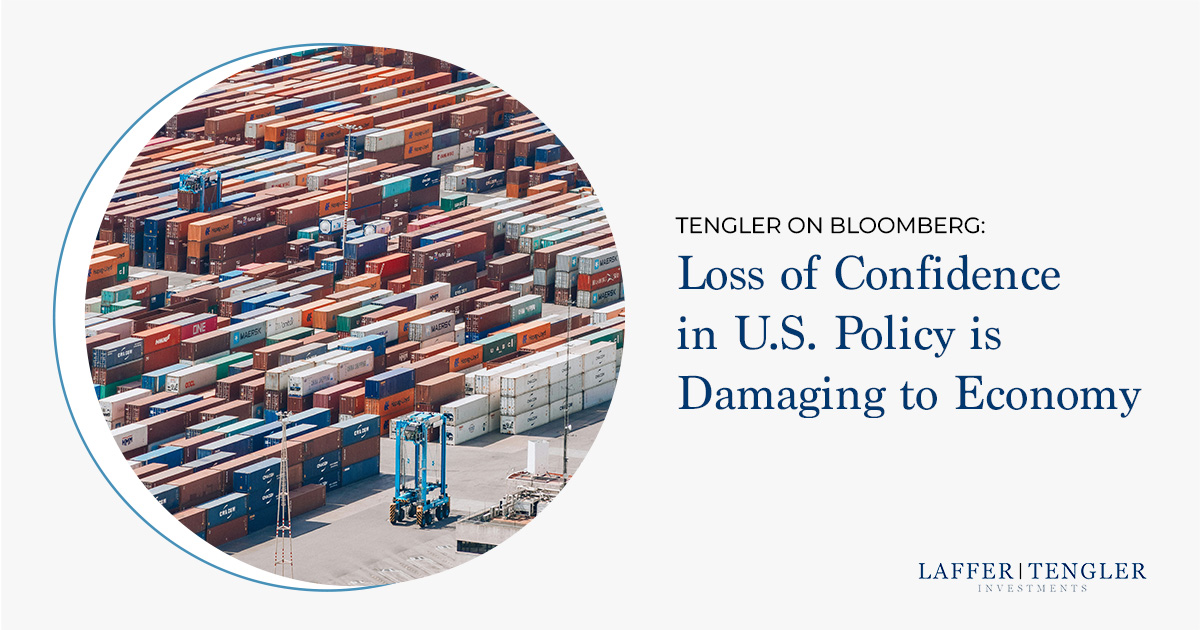Laffer: June Consumer Confidence Report Just Bad Timing
In June, consumer confidence fell short of expectations, sparking a debate on its underlying causes. Peter Tchir and Laffer Tengler Investments President Arthur Laffer Jr. offered contrasting takes on the Schwab Network. Laffer attributes much of the drop to poor timing, suggesting political factors around the release skewed sentiment. He sees the dip as more reflective of noise than a fundamental change in consumer attitudes.

